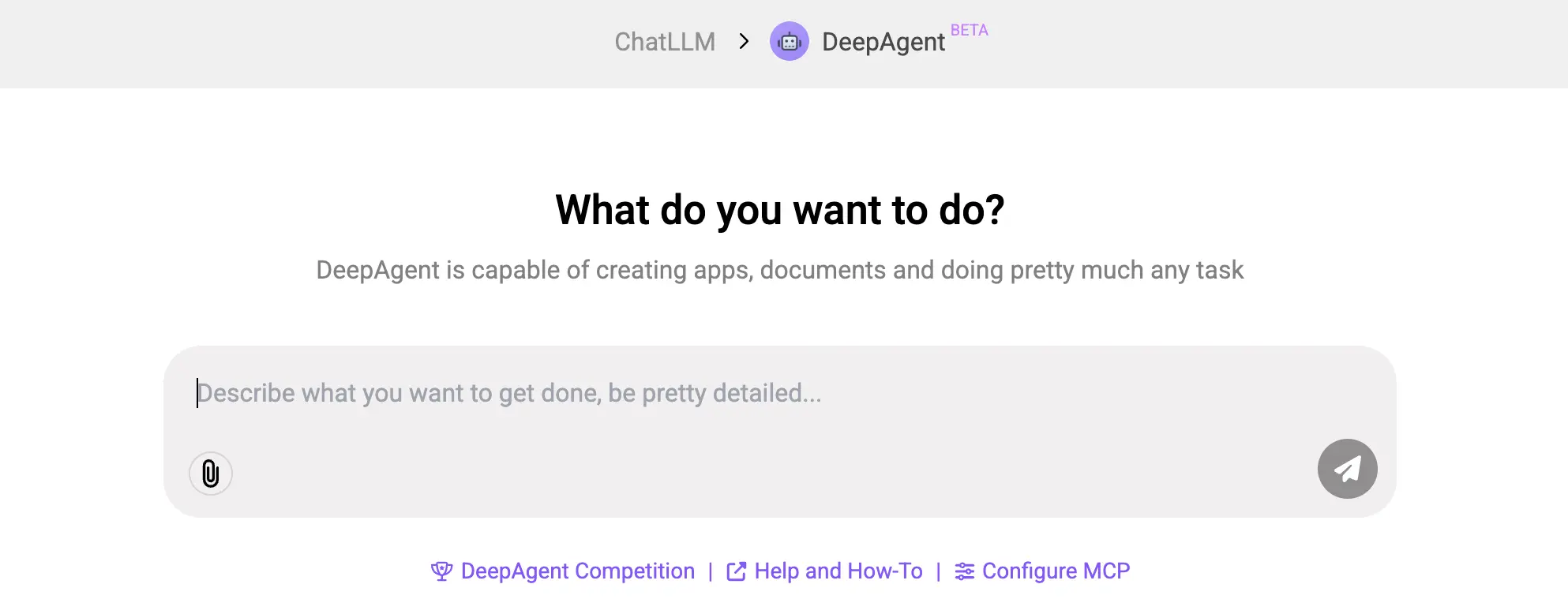MCP Servers How-to
Deep Agent MCPs: Superpowers for Your God-Tier Agent
Deep Agent now supports Model Context Protocols (MCPs), enabling seamless integration with external tools and data sources. MCP standardizes how AI agents interact with resources, making it easier to enhance Deep Agent's capabilities with real-time data, APIs, and services. This guide walks you through setting up and using MCPs in Deep Agent to create powerful, context-aware AI workflows.
What Are MCPs?
The Model Context Protocol (MCP) is an open standard that connects AI models, like those in Deep Agent, to external systems via a client-server architecture. Think of MCP as a universal connector, allowing Deep Agent to access tools (such as GitHub or databases) and resources (like files or APIs) without custom integrations. With MCP, you can enable Deep Agent to perform tasks like querying databases, fetching web content, or automating workflows.
Prerequisites
You’ll need:
- A Deep Agent account with access to the platform.
- API keys or credentials for external tools you want to integrate (for example, GitHub or Notion).
- Access to an MCP server (community-built or custom) or the ability to set one up.
Note: You can find a list of community-built MCP servers at GitHub and mcp.so. These directories will guide you on how to obtain the necessary tokens or API keys to configure your servers. Pick your favorite MCPs from these platforms and get started quickly.
Step-by-Step Guide to Using MCPs in Deep Agent
Step 1: Go to MCP Settings Config Page
-
Log in to your Abacus.AI account and navigate to the Deep Agent Homepage.
-
Click the Configure MCP button.

-
Alternatively, go to the Deep Agent Settings page via the top-right corner menu, then select MCP Server Config from the sidebar.
Step 2: Install and Configure an MCP Server
- Choose an MCP server that suits your needs (for example, create a repository in GitHub or fetch content from the web). Both local servers (installable via npm or PyPI) and remote servers (already deployed) are supported.
- Servers requiring access to your local filesystem will not work, as MCP servers run in an isolated environment without local filesystem access.
- Copy the server’s config JSON and paste it into the JSON Config settings page.
- Add a new MCP server config JSON based on its transport type:
- Stdio: For local servers, provide the required parameters such as
command,args,env, etc. Example:"command": "npx",
"args": ["-y", "@modelcontextprotocol/server-github"] - SSE: For remote servers, provide the server URL and other optional parameters.
Example:
http://example.com:8000/sse
- Stdio: For local servers, provide the required parameters such as
- Configure the server with necessary credentials or environment variables (such as API keys), and make sure you are authenticated on the remote server platform when using remote servers.
- Deep Agent will query the server to list available tools and resources.
Example Config
Below is a sample JSON configuration for two MCP servers: GitHub and Google Tasks.
{
"github": {
"command": "npx",
"args": ["-y", "@modelcontextprotocol/server-github"],
"env": {
"GITHUB_PERSONAL_ACCESS_TOKEN": "<YOUR_TOKEN>"
}
},
"google_tasks": {
"url": "<REMOTE_SERVER_URL>"
}
}
Step 3: Use MCP Tools in Deep Agent
- In your Deep Agent chat interface, instruct the agent to use the MCP tool. For example: "Access this website and tell me its structure using Playwright’s tools."
- Deep Agent will display a call to the tool with the requested parameters.
- View the tool's output in the chat, which Deep Agent can use for further tasks (such as summarizing content).
FAQs and Troubleshooting
Why isn't my MCP server connecting?
-
Ensure that the command or URL in your config JSON is correct and matches the format shown in the example config. Also, verify that the server is running.
-
Some platforms may wrap the JSON config within a structure like the one below. When copying the config, include only the server configuration JSON—not the wrapper. Refer to the example config above.
{
"mcpServers": {
"<your server config json>"
}
}
Can I use multiple MCP servers?
Yes, Deep Agent supports adding up to 5 servers and up to 50 tools across those servers. Add each server in the Integrations settings, but limit active tools to avoid overwhelming the LLM.
How do I secure my MCP connections?
Use MCP servers from trusted sources only, and prefer OAuth authentication for remote servers.